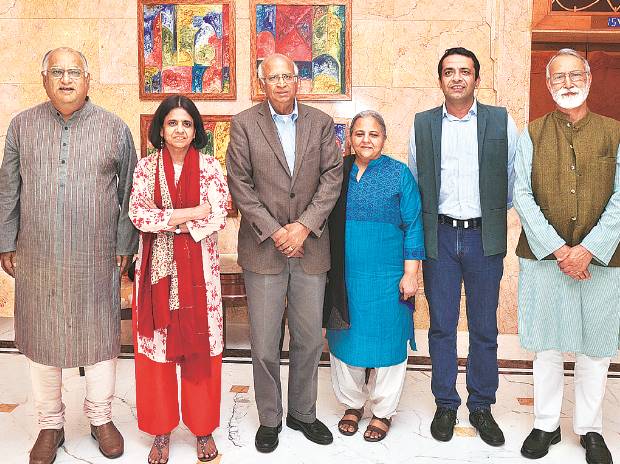Headed by S Ramadorai, chairman, Tata Institute of Social Sciences, the jury included Sunita Narain, director-general, Centre for Science and Environment; Vijay Mahajan, founder-chairman, Basix Group; Deep Joshi, co-founder of Pradan; Reema Nanavaty, secretary-general, Self Employed Women’s Association (SEWA) and Anshu Gupta, founder, Goonj. Deloitte was the knowledge partner for the exercise.
The jury members decided to recuse themselves when the organisations they were involved in came up for discussions.
Over intense deliberations – that lasted close to two hours – the jury chose Barefoot College Founder Sanjit (Bunker) Roy as the Social Entrepreneur of the Year and Axis Bank, the Socially Aware Corporate of the Year. Pratham Education Foundation bagged the Social Enterprise of the Year award.
The jury deliberated for 45 minutes to arrive at the winner in this category. When deliberating on the Social Entrepreneur of the Year winner, the jury considered 32 social entrepreneurs shortlisted on account of public availability of information, proof of impact and other indicators. Sanjit (Bunker) Roy, founder, Barefoot College, was unanimously chosen the winner in this segment as “people in this sector see him as a beacon to others,” as Ramadorai put it.

Social Enterprise of the Year: Pratham Education Foundation and its CEO Madhav Chavan
What worked in Axis Bank’s favour was its outreach beyond natural client groups, while scoring on financial inclusion parameters through its work in adivasi areas. Axis Bank’s adoption of a scale-up strategy through collaborations impressed many jury members. Ramadorai said the impact that Axis Bank’s CSR efforts made on the ground was one of the reasons for choosing the company.

Socially Aware Corporate of the Year: Axis Bank and its MD&CEO Shikha Sharma
Commenting on the award selection process, Ramadorai said the wealth of the experience of the jury members helped the decision-making.
After the deliberations, the jury members suggested further improvements in the evaluation process of social enterprises and the work of individuals in this segment. One key takeaway was the need for a robust methodology to measure CSR spend impact, the jury members said.

